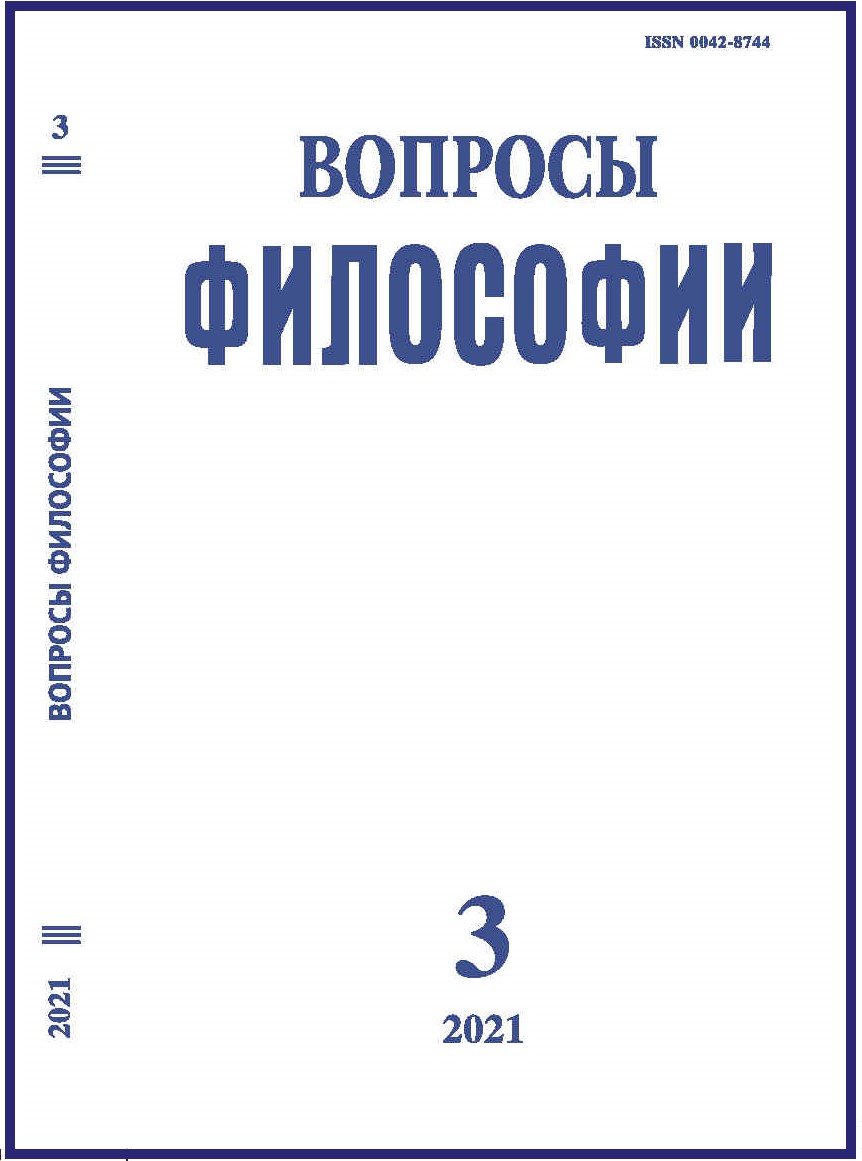Spiritual Crisis of the Beginning of the 20th Century: From Philosophical to Religious Interpretations
DOI:
https://doi.org/10.21146/0042-8744-2021-3-79-88Keywords:
spiritual crisis, phenomenology, modern, religious consciousness, the holy, Koselleck, Reinach, FrankAbstract
The paper is an attempt to narrow down the notion of spiritual crisis which is now widely applied in research on history of culture of the 19th–20th centuries, with respect to history of German philosophy and observation of modern religiosity. The shift from the history of philosophy to the religious context is fulfilled through analysis of texts of two religious thinkers, A. Reinach and S. Frank, whose thought clearly demonstrates strong interconnection between the both fields. Analysis of contemporary studies on history of phenomenological philosophy (C. Möckel and W. Gleixner) lets firstly observe ways of application of Koselleck’s notion of crisis to investigations in the history of philosophy. Secondly it discovers two possibilities of philosophical contextualization of the concept of spiritual crisis – on the one hand, as a constituent rhetorical element of the philosophical statement (Möckel), on the other hand, as a term which describes the uniqueness of an intellectual situation of the beginning of the 20thcentury (Gleixner). Then these aspects of the rhetoric of crisis are applied to religious philosophy of Reinach and Frank, what leads to interpretation of their works as a particular statement discovering the divine (or the holy) as a new category of religious consciousness.

